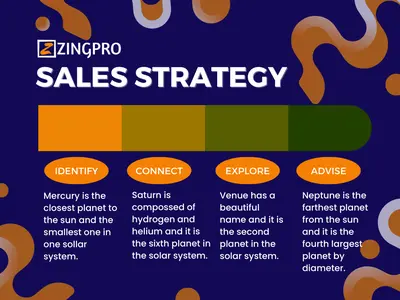The sales representatives or salespeople make up an organization’s sales force. They act as the face of the company and interact directly with customers or prospects – potential customers – to make sales and build long-term relationships.
The salesforce can include inside salespeople, who conduct business from their offices and field salespeople or traveling salespeople, who call on customers (visit them). The inside sales team usually builds the target list of customers.
Personal Selling
Sales forces are often organized with each salesperson having an exclusive territory – a geographical zone due to cultural and linguistic differences. Salespeople normally have variable pay in the form of incentives, financial bonuses or gifts, if they reach their target or sales quota – the amount of revenue they have to bring in during a given period.
Personal selling, or meeting and selling to a customer face-to-face, is different from impersonal selling such as advertising and sales promotion. In the current digital world, personalized selling is gaining traction, as email messages, videos, or images can be targeted at an individual with a personalized message.

Sales Process
The sales process helps the sales force convert leads into signed deals (change prospective customers to actual customers).
Prospecting and qualifying
Salespeople prospect (or look for) new clients. New leads are generated by making cold calls, calling potential customers from a list, or by asking current customers for referrals. The best leads are then identified or qualified.
Presenting
The sales presentation can focus on the product’s USP (unique selling products), or be customer-oriented – showing how the product will meet the customer’s needs. Testimonials from satisfied customers can capture audience interests during the presentation.
Closing deals
When the buyers show interest, the salespeople should focus on closing the deal by asking the customers to make an order.
Following up
Follow-up calls are part of the after-sales service which enables salespeople to check customer satisfaction with the service or product – how happy they are with it. Satisfied customers will become repeat customers spreading positive word of mouth.
Marketing Team
Marketing supports the sales force by providing leads including product knowledge and market knowledge. The salesforce should have a constant supply of quality leads. Marketers can design marketing collateral including videos and images, to gain the customer’s attention. The sales kit usually contains:
- Product samples (so customers get a better idea of what the product is)
- Price lists (cost sometimes with competitor’s cost)
- Order forms (QR code, payment link)
- Sales literature – educating the customers about the product features (what it does) and product benefits (why the product is good), and its unique selling points or USPs (what it has that its competitors don’t).
Comprehension Questions
- Who make up the sales force in an organization?
- What does the sales force include?
- What is personal selling?
- Is sales process necessary for a sales team and how?
- How does marketing support the sales force?
FAQ
What are terms used in sales and marketing?
There are many terms used in sales and marketing. Here are some common ones:
1. Target audience
2. Lead
3. Conversion
4. Sales funnel
5. Marketing mix
6. Branding
7. Market research
8. Unique selling proposition (USP)
9. Call to action (CTA)
10. ROI (Return on Investment)
What are the 7 key terms in marketing?
There are many important terms in marketing, but here are seven key terms that are fundamental to understanding the discipline:
1. Target audience
2. Branding
3. Positioning
4. Marketing mix
5. Market research
6. Marketing strategy
7. ROI (Return on Investment)
What are the basic terms of sales?
The basic terms of sales are the key elements that are involved in any sales transaction. These terms are essential to understand for both buyers and sellers to ensure a successful transaction. Some of the basic terms of sales include:
1. Product
2. Price
3. Quantity
4. Payment terms
5. Delivery terms
Read also How to earn money from YouTube?



